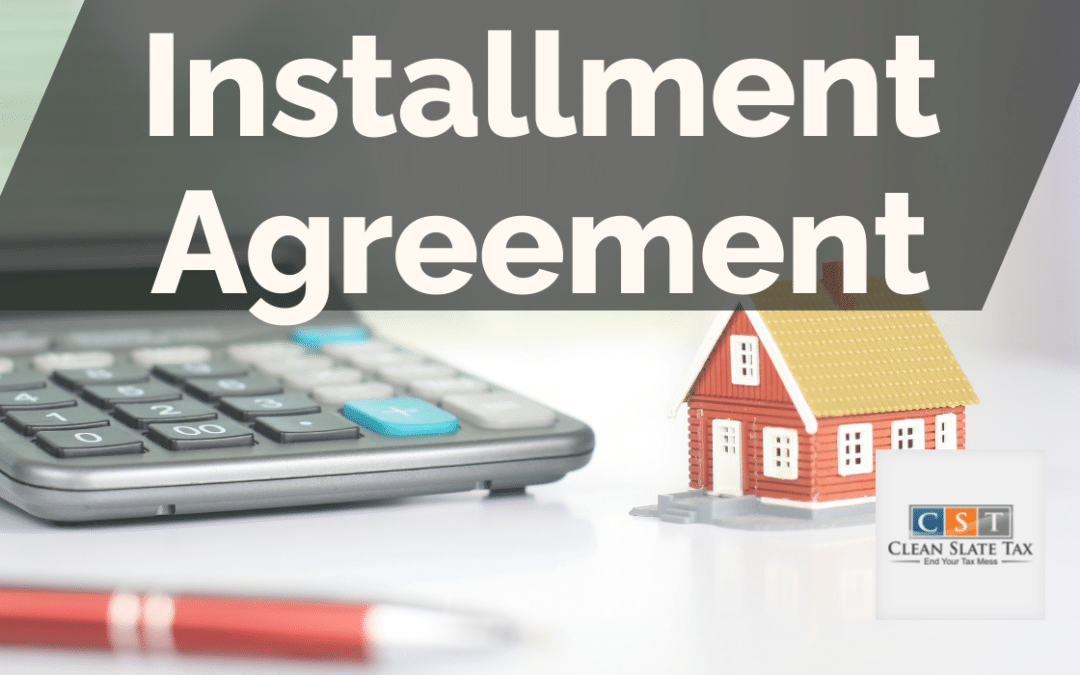As a taxpayer, it is possible to experience financial challenges and find it tough to pay your taxes to the IRS with a lump sum. The good news is that the Internal Revenue Service (IRS) offers a solution called an installment agreement to assist taxpayers to pay taxes in smaller, more manageable amounts. Installment agreements allow taxpayers to pay their taxes in monthly payments until they are entirely paid off.
What is an Installment Agreement?
An installment agreement is a payment approach that the IRS uses to enable taxpayers to resolve tax debts over time. It is a method that is designed for taxpayers who cannot pay their taxes in full and can offer financial relief to taxpayers that agree to pay taxes in monthly payments.
Types of Installment Agreements
The IRS offers several types of installment agreements that taxpayers can take advantage of. They include;
Guaranteed Installment Agreement
This is the most straightforward form of an installment agreement. A guaranteed installment agreement applies when a taxpayer owes $10,000 or less in back taxes, penalties, and interest and has filed returns on time for the past five years and initiated payments immediately. However, the IRS may adjust amounts to be paid.
Streamlined Installment Agreement
A streamlined installment agreement applies when a taxpayer owes between $10,000 and $50,000 and the balance can be fully repaid within six years. To qualify, the taxpayer must agree to pay in monthly installments and must also agree to file and pay their taxes on time over the duration of the payment period.
Non-Streamlined Installment Agreement
This form of the installment agreement enables the taxpayer to pay their tax debt over a more extended period than six years. It applies when the taxpayer owes $50,000 or over or cannot meet the criteria specified under the other two installment agreements.
The taxpayer will have to provide detailed financial information to the IRS, which includes submitting a collection information statement (Form 433-A).This statement will contain the taxpayer’s detailed assets, liabilities, and income and expenses.
How to Apply for Installment Agreements
To apply, a taxpayer must first file all necessary tax returns before seeking a payment plan.
Every taxpayer must have an online account with the IRS, which can be created quickly on their website. Once you have an online account, the steps are easy:
- Find a payment plan application, either by using the Online Payment Agreement tool on the IRS website or by completing Form 9465, Installment Agreement Request
- Submit the required financial information including income, expenses, and monthly liabilities using Form 433-F, Collection Information Statement
- Choose the amount of your payment and your payment due date
- If the IRS approves your application, you’ll pay a fee to set up the agreement
Benefits of Installment Agreements
The most apparent benefit of an installment agreement is the ability to pay the taxes owed in small, monthly installments, which can be financially manageable. Additionally, installment agreements enable taxpayers to avoid incurring hefty interest and penalty costs that accrue when taxes owed are not paid.
Disadvantages of Installment Agreements
While installment agreements have some advantages, they also have some disadvantages that taxpayers should consider. These include:
Interest and Penalties
An installment agreement can come with interest and penalties, even if the taxpayer is making steady payments on time, hence, the overall cost can increase.
Credit Score
Revenue actions such as the creation of an installment agreement will be documented in the taxpayer’s credit record. This may impact their credit score and history.
IRS Levy
The IRS may take collection efforts, such as wage garnishment, bank levies, or liens, among others if the taxpayer fails to follow the terms of the installment agreement.
Frequently Asked Questions (FAQs)
Can I modify my installment agreement?
Yes. If a taxpayer is experiencing financial difficulties and is no longer able to keep up with the installment payments, they may contact the IRS requesting a modification of the agreement.
Can I use an installment agreement if I owe more than $50,000?
Yes. However, the taxpayer will have to provide more detailed financial information and agree to an investigation of their finances and wage garnishments.
What happens if I miss an installment payment?
If you miss a payment, you must notify the IRS immediately. You also have to continue submitting your tax returns, even if you cannot make payments.
Failure to notify the IRS can result in defaulting, which can lead to further legal issues.
Can I pay my installment agreement early?
Yes. You can pay your installment agreement entirely before the end of the payment period if you have the funds.





